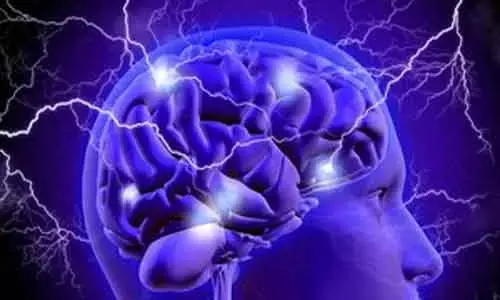- Home
- Medical news & Guidelines
- Anesthesiology
- Cardiology and CTVS
- Critical Care
- Dentistry
- Dermatology
- Diabetes and Endocrinology
- ENT
- Gastroenterology
- Medicine
- Nephrology
- Neurology
- Obstretics-Gynaecology
- Oncology
- Ophthalmology
- Orthopaedics
- Pediatrics-Neonatology
- Psychiatry
- Pulmonology
- Radiology
- Surgery
- Urology
- Laboratory Medicine
- Diet
- Nursing
- Paramedical
- Physiotherapy
- Health news
- Fact Check
- Bone Health Fact Check
- Brain Health Fact Check
- Cancer Related Fact Check
- Child Care Fact Check
- Dental and oral health fact check
- Diabetes and metabolic health fact check
- Diet and Nutrition Fact Check
- Eye and ENT Care Fact Check
- Fitness fact check
- Gut health fact check
- Heart health fact check
- Kidney health fact check
- Medical education fact check
- Men's health fact check
- Respiratory fact check
- Skin and hair care fact check
- Vaccine and Immunization fact check
- Women's health fact check
- AYUSH
- State News
- Andaman and Nicobar Islands
- Andhra Pradesh
- Arunachal Pradesh
- Assam
- Bihar
- Chandigarh
- Chattisgarh
- Dadra and Nagar Haveli
- Daman and Diu
- Delhi
- Goa
- Gujarat
- Haryana
- Himachal Pradesh
- Jammu & Kashmir
- Jharkhand
- Karnataka
- Kerala
- Ladakh
- Lakshadweep
- Madhya Pradesh
- Maharashtra
- Manipur
- Meghalaya
- Mizoram
- Nagaland
- Odisha
- Puducherry
- Punjab
- Rajasthan
- Sikkim
- Tamil Nadu
- Telangana
- Tripura
- Uttar Pradesh
- Uttrakhand
- West Bengal
- Medical Education
- Industry
Small vessel disease tied to increased risk of recurrent stroke: Study

UK: Small vessel disease (SVD) in patients anticoagulated for atrial fibrillation after stroke, is associated with an increased risk of recurrent ischemic stroke, suggests a recent study in the journal Stroke.
Even after anticoagulation for atrial fibrillation, recurrent ischemic stroke may occur the cause of which is uncertain but might include small vessel occlusion. David J. Werring, UCL Institute of Neurology, London, United Kingdom, and colleagues investigated whether MRI markers of cerebral SVD are associated with the risk of ischemic stroke during follow up in patients anticoagulated for atrial fibrillation after transient ischemic attack or recent ischemic stroke.
For the purpose, the researchers analyzed data from a prospective multicenter inception cohort study of ischemic stroke or transient ischemic attack anticoagulated for atrial fibrillation (CROMIS-2 [Clinical Relevance of Microbleeds in Stroke Study]. Markers of SVD were rated on baseline brain magnetic resonance imaging: basal ganglia perivascular spaces (number ≥11); cerebral microbleeds (number ≥1); lacunes (number ≥1); and white matter hyperintensities (periventricular Fazekas grade 3 or deep white matter Fazekas grade ≥2).
The associations of SVD presence and (defined as presence of ≥1 SVD marker) and severity (composite SVD score) with ischemic stroke risk were investigated during follow-up using a Cox proportional hazards model adjusted for congestive heart failure, hypertension, age >75, diabetes, stroke, vascular disease, age 65–74, female score. A total of 1419 patients were included in the study.
Key findings of the study include:
- The ischemic stroke rate during follow-up in patients with any SVD was 2.20 per 100-patient years, compared with 0.98 per 100 patient-years in those without SVD.
- After adjusting for congestive heart failure, hypertension, age >75, diabetes, stroke, vascular disease, age 65–74, female score, SVD presence remained significantly associated with ischemic stroke during follow-up (hazard ratio, 1.89); the risk of recurrent ischemic stroke increased with SVD score (hazard ratio per point increase, 1.33).
"In patients anticoagulated for atrial fibrillation after ischemic stroke or transient ischemic attack, magnetic resonance imaging markers of SVD are associated with an increased risk of ischemic stroke during follow-up; improved stroke prevention treatments are required in this population," wrote the authors.
The study, "Small Vessel Disease and Ischemic Stroke Risk During Anticoagulation for Atrial Fibrillation After Cerebral Ischemia," is published in the AHA journal Stroke.
DOI: https://www.ahajournals.org/doi/10.1161/STROKEAHA.120.029474
Dr Kamal Kant Kohli-MBBS, DTCD- a chest specialist with more than 30 years of practice and a flair for writing clinical articles, Dr Kamal Kant Kohli joined Medical Dialogues as a Chief Editor of Medical News. Besides writing articles, as an editor, he proofreads and verifies all the medical content published on Medical Dialogues including those coming from journals, studies,medical conferences,guidelines etc. Email: drkohli@medicaldialogues.in. Contact no. 011-43720751


